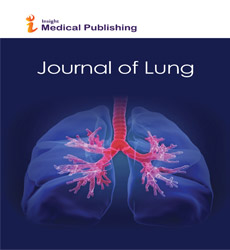Acute exacerbations of chronic obstructive pulmonary disease: Improving patient outcomes via preventing options
Abstract
The goal of this report is to improve patient outcomes in acute exacerbations of chronic obstructive pulmonary disease(AECOPD) by using preventing options .We are going to discuss the importance of exacerbations in the natural history of COPD, the experience of exacerbations-how we can prevent these events. The Global Initiative for Lung Disease(GOLD) is quite vague in defining an exacerbation. However, this definition is not objective and based on complaints of patients and subjective. And recently has been published new approach to the definition of the COPD exacerbation by John Hurst and coauthors, which has the advantage of proposing a more objective type of definition with timeframe and specific symptoms listed ,characterizing the exacerbation, and all od them quantifiable in an objective way ,a number of markers and biomarkers again ,that can be measured and quantified, and the possibility of etiologic causes. So it is more a true definition of what an exacerbation is. And another question is why is it so important to have a good knowledge of exacerbation? Because exacerbations are extremely crucial in the natural history of COPD, not only for the acute event per se, which might be very severe-it might be fatal actually in some cases-but because exacerbations do impact on every single outcome of COPD. Frequent exacerbates are those with the worst quality of life; risk for future exacerbation, the more frequent exacerbations, the more likely it is that future exacerbations will be severe and require hospitalization; the impact on acceleration of decline in lung function and life expectancy. One severe exacerbation requiring hospitalization decreases life expectancy. Fifty percent of patients died less than 4 years after their first hospitalization for an exacerbation and so there is good understanding why one single event is too much and also good understanding is why we need to aim to reduce this event. There is raising regarding GOLD and changes is that now one exacerbation in the follow-up is considered a flag for future risk. So one exacerbation is indicating the need for prevention of future exacerbations. The ECLIPSE study showing that one exacerbation already indicates more than twice the risk for future exacerbations . The importance of non-pharmacological intervention, prevention, vaccination, smoking cessation, good use of devices ,rehabilitation is clear. The is also most important point in this term is effective treatment approaches for preventing these acute events. The doctors cannot ignore COVID and what we have learned from this pandemic, which has taught us how infection can be effectively prevented by simple measures ,and how communication on lifestyle is important to avoid these dramatic event for patients.
Open Access Journals
- Aquaculture & Veterinary Science
- Chemistry & Chemical Sciences
- Clinical Sciences
- Engineering
- General Science
- Genetics & Molecular Biology
- Health Care & Nursing
- Immunology & Microbiology
- Materials Science
- Mathematics & Physics
- Medical Sciences
- Neurology & Psychiatry
- Oncology & Cancer Science
- Pharmaceutical Sciences
